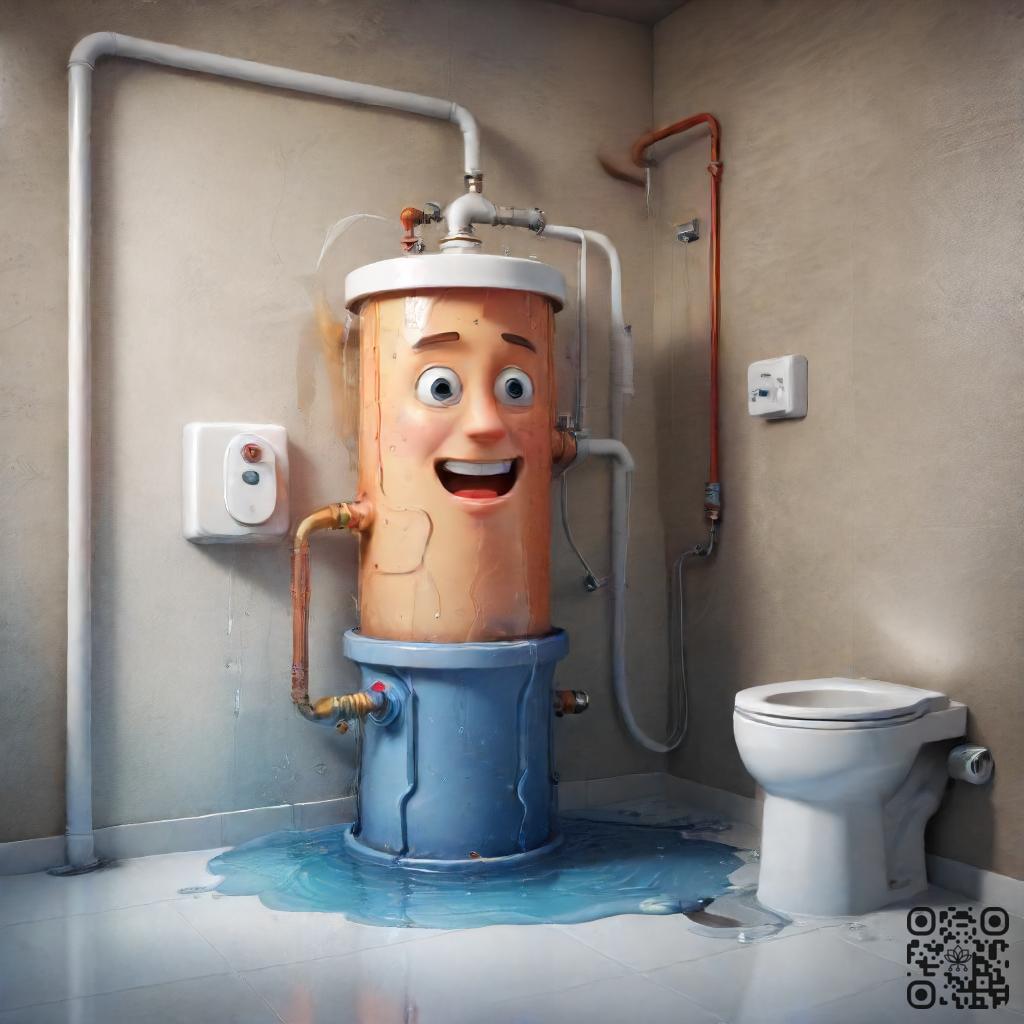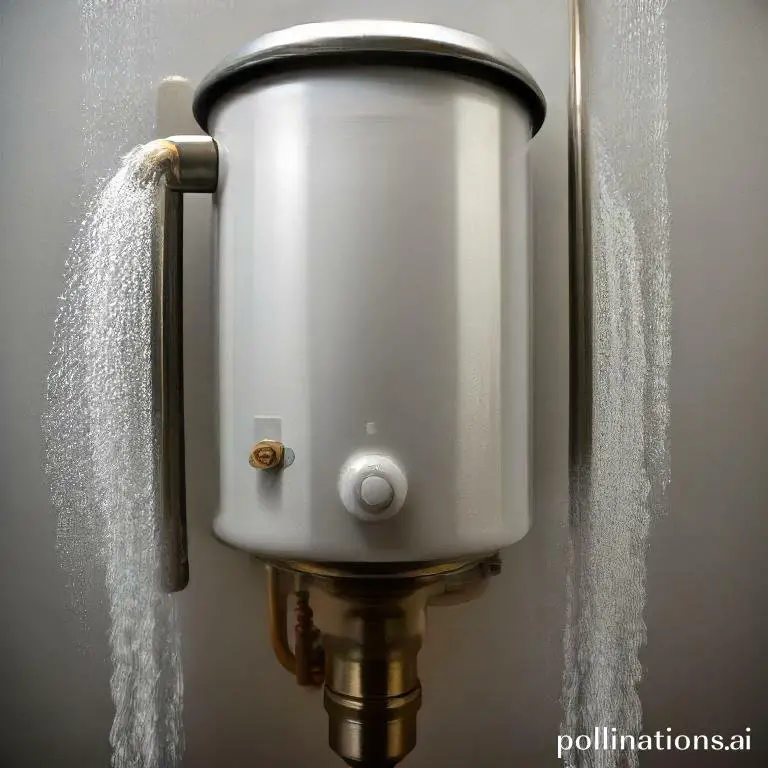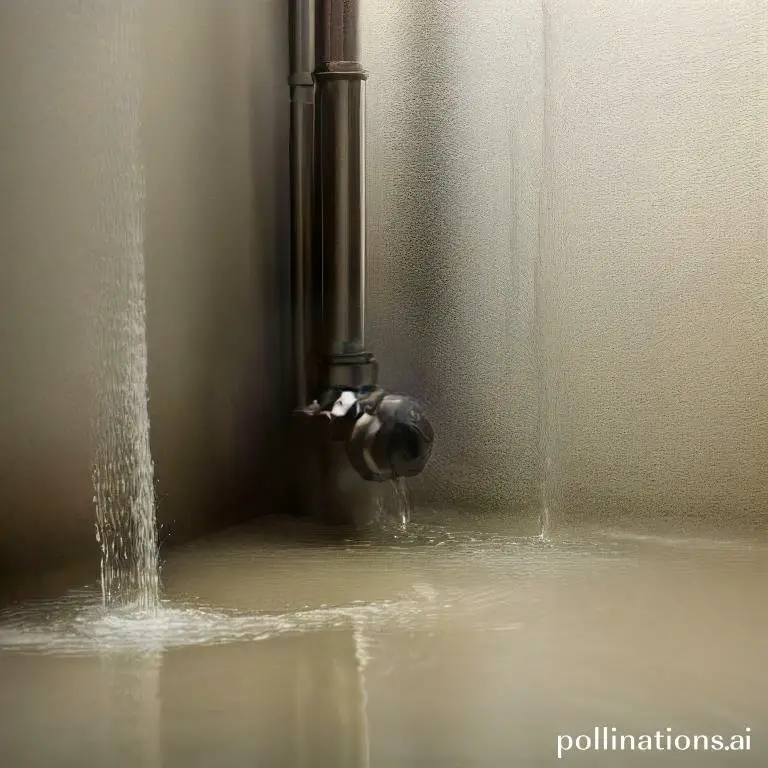
II. The severity of the leak and the length of time it goes unnoticed can greatly impact the damage done to the water heater.
III. Regular maintenance and prompt repairs can help prevent leaks and extend the lifespan of a water heater.
Leaks can have a significant impact on the lifespan of water heaters. Not only do leaks waste water and increase utility bills, but they can also cause damage to the surrounding area.
If left unaddressed, leaks can lead to corrosion, rust, and even structural issues. Regular maintenance and timely repairs are crucial to ensure the longevity of your water heater.
By promptly fixing leaks and addressing any underlying issues, you can extend the lifespan of your water heater and avoid costly replacements.
Causes of Water Heater Leaks
Water heater leaks can be a common and frustrating issue for homeowners. Grasping the causes of these leaks is crucial in order to prevent them and ensure the longevity of your water heater.
1. Corrosion
One of the leading causes of water heater leaks is corrosion. Over time, the metal components of the water heater tank can deteriorate due to constant exposure to water. This corrosion weakens the tank, eventually leading to leaks. Regular maintenance, such as flushing the tank and inspecting for signs of corrosion, can help prevent this issue.
2. Sediment Buildup
Another common cause of leaks is sediment buildup. Over time, minerals and debris can accumulate at the bottom of the water heater tank. This sediment can cause the tank to overheat, leading to cracks and leaks. Regularly flushing the tank to remove sediment can help prevent this issue.
3. High Water Pressure
If your water heater experiences high water pressure, it can put excessive strain on the tank, causing leaks. Installing a pressure regulator can help regulate the water pressure and prevent leaks from occurring.
4. Temperature and Pressure Relief Valve Failure
The temperature and pressure relief valve is a crucial safety component of a water heater. If this valve fails, it can result in excessive pressure and temperature inside the tank, leading to leaks. Regularly testing and replacing this valve can help prevent leaks and ensure the safe operation of your water heater.
5. Loose or Damaged Connections
Leaks can also occur due to loose or damaged connections between the water heater and the plumbing system. Over time, these connections can become worn or corroded, resulting in leaks. Regularly inspecting and tightening these connections can help prevent leaks and ensure proper functioning of your water heater.
| Cause | Prevention |
|---|---|
| Corrosion | Regular maintenance, flushing, and inspection |
| Sediment Buildup | Regular tank flushing |
| High Water Pressure | Installation of a pressure regulator |
| Temperature and Pressure Relief Valve Failure | Regular testing and replacement |
| Loose or Damaged Connections | Regular inspection and tightening |
Addressing these causes and implementing preventive measures will help keep your water heater in optimal condition, ensuring a reliable supply of hot water without the inconvenience and expense of leaks.
Signs of Water Heater Leaks
Water heater leaks can be a cause for concern, as they can lead to significant damage if left unchecked. Integral to be aware of the signs that indicate a potential water heater leak, so you can take prompt action to address the issue. Here are some key signs to watch out for:
1. Water Pooling Around the Water Heater
One of the most obvious signs of a water heater leak is the presence of water pooling around the unit. If you notice puddles of water forming near the water heater, it is a clear indication that there is a leak. This could be due to a faulty valve or a crack in the tank, and it should be addressed immediately to prevent further damage.
2. Decreased Hot Water Supply
If you suddenly find yourself running out of hot water quicker than usual, it could be a sign of a water heater leak. A leak in the system can cause a decrease in hot water supply, as the water is not being effectively stored and heated. If you notice a significant drop in hot water availability, it is recommended to have your water heater inspected for leaks.
3. Discolored Water
Another indication of a water heater leak is discolored water coming from your faucets. If the water appears rusty or has a brownish tint, it could be a sign that your water heater is leaking rust or sediment into the water supply. This can be a health concern and should be addressed promptly to avoid any further issues.
4. Strange Noises from the Water Heater
If you hear unusual noises coming from your water heater, such as banging, popping, or hissing sounds, it could be a sign of a leak. These noises are typically caused by the water heater struggling to heat the water due to a leak or other internal issues. Integral to have a professional inspect the unit to determine the cause of the noises and address any potential leaks.
5. Increased Utility Bills
An unexpected increase in your utility bills could be a sign of a water heater leak. Leaks in the system can lead to water wastage, causing your water heater to work harder and consume more energy. If you notice a significant spike in your utility bills without any other explanation, it is advisable to have your water heater checked for leaks.
Impact of Leaks on Water Heater Lifespan
Water heater leaks can have a significant impact on the lifespan of your appliance. Indispensable to be aware of the potential consequences and take prompt action to address any leaks that may occur.
Rust and Corrosion
One of the primary effects of water heater leaks is the development of rust and corrosion. When water continuously leaks from your heater, it can lead to the formation of rust on the internal components. This can weaken the structure of the heater and ultimately reduce its lifespan.
Damage to Electrical Components
Water and electricity do not mix well, and leaks can pose a serious risk to the electrical components of your water heater. If water seeps into the electrical connections or wiring, it can cause damage and potentially lead to malfunctions or even electrical hazards. It is crucial to address leaks promptly to prevent any electrical damage.
Structural Damage
Leaks can also cause structural damage to your water heater and the surrounding area. Over time, the constant presence of water can weaken the walls, floors, or supports that hold the heater in place. This can lead to instability and potential water damage to your property.
Increased Energy Consumption
When your water heater has leaks, it may need to work harder to maintain the desired temperature. This increased workload can result in higher energy consumption, leading to higher utility bills. By confronting leaks promptly, you can ensure that your water heater operates efficiently and minimize energy waste.
Risk of Electrical Hazards
Water leaks in a water heater can create a risk of electrical hazards. If water comes into contact with live electrical components, it can cause short circuits or electrical shocks. This poses a danger to anyone in close proximity to the water heater. It is essential to fix leaks promptly to mitigate the risk of electrical hazards.

Prevention of Water Heater Leaks
Water heater leaks can cause significant damage to your home and result in costly repairs. It is essential to take preventive measures to ensure the proper functioning of your water heater and avoid leaks. In this article, we will discuss five effective ways to prevent water heater leaks.
1. Regular Maintenance
Regular maintenance is crucial for the longevity of your water heater and to reduce the risk of leaks. Schedule annual maintenance checks with a professional plumber to inspect and service your water heater. They will check for any signs of wear and tear, replace faulty components, and ensure optimal performance.
2. Flushing the Tank
Flushing the tank regularly helps to remove sediment buildup, which can lead to leaks. Over time, minerals and debris can accumulate at the bottom of the tank, causing corrosion and weakening the tank walls. By flushing the tank, you can remove these sediments and prevent leaks.
3. Replacing the Anode Rod
The anode rod is a critical component that helps prevent corrosion inside the water heater tank. Over time, the anode rod can deteriorate, leaving the tank vulnerable to leaks. Regularly inspect the anode rod and replace it if necessary. A new anode rod will provide additional protection against leaks and extend the life of your water heater.
4. Checking the Temperature and Pressure Relief Valve
The temperature and pressure relief valve is a safety feature that releases excess pressure and prevents the tank from exploding. Regularly check the valve to ensure it is functioning correctly. If the valve is faulty or leaking, it should be replaced immediately to prevent any potential damage.
5. Professional Inspection
At the same time regular maintenance is essential, it is also beneficial to have a professional inspection of your water heater. A professional plumber can identify any potential issues that may lead to leaks and address them promptly. They have the expertise to detect hidden leaks or signs of damage that may go unnoticed.
| Preventive Measures | Benefits |
|---|---|
| Regular maintenance | Longevity and optimal performance |
| Flushing the tank | Removal of sediment buildup |
| Replacing the anode rod | Prevention of corrosion |
| Checking the temperature and pressure relief valve | Safety and prevention of tank explosion |
| Professional inspection | Early detection of potential issues |

Repairing Water Heater Leaks
Water heater leaks can cause significant damage if not addressed promptly. In this section, we will guide you through the necessary steps to repair a water heater leak and ensure its proper operation.
1. Shutting Off Power and Water Supply
The first step in repairing a water heater leak is to turn off the power and water supply. This will prevent any accidents and allow you to work safely. Locate the circuit breaker or fuse box and switch off the power to the water heater. Then, find the shut-off valve on the cold water supply line and turn it clockwise to shut off the water flow.
2. Identifying the Source of the Leak
Once the power and water supply are turned off, you can start identifying the source of the leak. Inspect the water heater carefully, looking for any visible signs of leakage. Common areas where leaks occur include the pressure relief valve, drain valve, and tank itself. Take note of the location and extent of the leak for further troubleshooting.
3. Repairing or Replacing Damaged Parts
Depending on the source of the leak, you may need to repair or replace damaged parts. If the leak is coming from the pressure relief valve or drain valve, they may need to be replaced. In some cases, tightening loose connections or replacing faulty gaskets can resolve the issue. In contrast, if the tank itself is leaking, it may require professional repair or replacement.
4. Refilling the Tank
Once the necessary repairs are made, you can proceed to refill the tank. Open the shut-off valve on the cold water supply line and allow the tank to fill. Keep an eye on the pressure relief valve during this process to ensure proper operation. Once the tank is filled, turn on the power to the water heater.
5. Testing for Proper Operation
After refilling the tank, it is crucial to test the water heater for proper operation. Turn on a hot water faucet and check for any signs of leakage. Additionally, monitor the temperature and pressure to ensure they are within the recommended range. If everything appears to be working correctly, you have successfully repaired the water heater leak.
| Step | Action |
|---|---|
| 1 | Shut off power and water supply |
| 2 | Identify the source of the leak |
| 3 | Repair or replace damaged parts |
| 4 | Refill the tank |
| 5 | Test for proper operation |
Bottom Line
Leaks in water heaters can significantly reduce their lifespan and lead to costly repairs or replacements. Regular maintenance and prompt repairs can help prevent leaks and extend the life of your water heater. Essential to monitor your water heater for any signs of leaks, such as puddles or dampness around the unit, and address them immediately. Additionally, investing in a high-quality water heater with a durable tank and reliable components can help prevent leaks and ensure a longer lifespan. By taking proactive measures to prevent leaks and address them promptly, you can save money and avoid the inconvenience of a malfunctioning water heater.
In summary, leaks can have a major impact on the lifespan of your water heater, but with proper care and maintenance, you can extend its life and avoid costly repairs or replacements. Don’t ignore signs of leaks and invest in a high-quality water heater to ensure reliable performance and longevity.
Read More:
1. Water Heater Leaks And Energy Consumption
2. Leaks And Their Impact On Water Quality
















